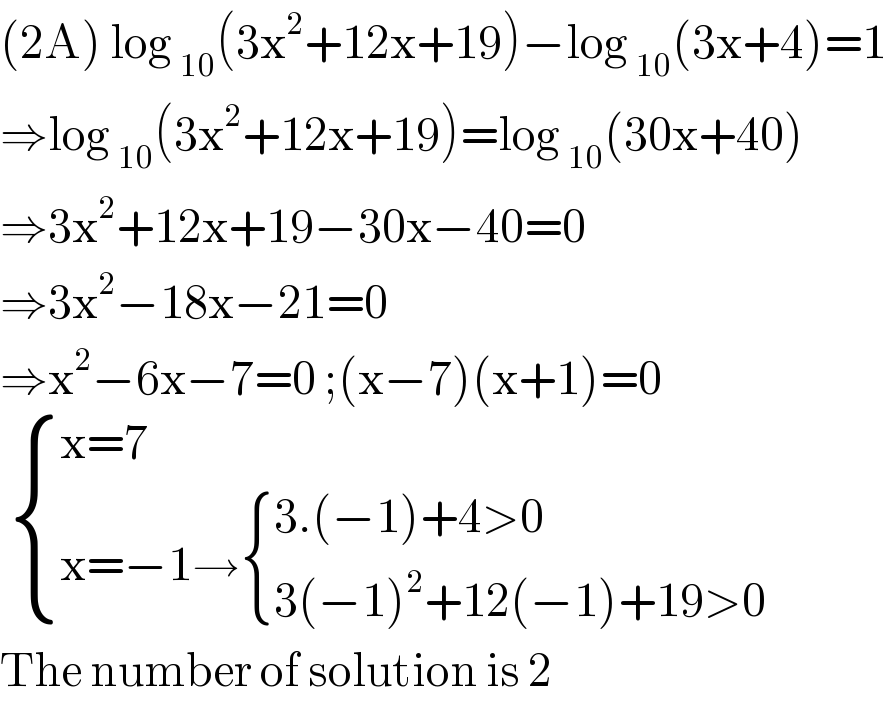
Question and Answers Forum
Question Number 121201 by Ar Brandon last updated on 05/Nov/20

Commented by Ar Brandon last updated on 06/Nov/20

Commented by MJS_new last updated on 06/Nov/20

Commented by MJS_new last updated on 06/Nov/20

Commented by Ar Brandon last updated on 06/Nov/20
Thanks Sir. For D after solving I had 3 solutions then rejected 3–√2 making them 2 solutions. Did you notice that too ? Or I made the mistake ?
Commented by liberty last updated on 06/Nov/20

Commented by MJS_new last updated on 06/Nov/20

Answered by liberty last updated on 06/Nov/20

Answered by liberty last updated on 06/Nov/20

Answered by liberty last updated on 06/Nov/20
![(2D)2log _3 (x−2)+log _3 (x−4)^2 =0 numerus { ((x>2)),((x≠4)) :} ⇔ x∈(2,4) ∪(4,∞) ⇒log _3 (x−2)^2 +log _3 (x−4)^2 =0 ⇒log _3 [(x−2)(x−4)]^2 = log _3 (1) ⇒[(x−2)(x−4)]^2 =1 ⇒(x^2 −6x+8)^2 −1=0 ⇒(x^2 −6x+9)(x^2 −6x+7)=0 { (((x−3)^2 =0⇒x=3 ←double roots)),((x=((6±(√(36−28)))/2)=((6±2(√2))/2)=3±(√2))) :} 3+(√2) 4.414214 3−(√2) (rejected) 1.585786 The number of solution is 3](Q121210.png)
Commented by Ar Brandon last updated on 06/Nov/20
Thanks�� Please can you have a look at the answers suggested by the book ?
Commented by Ar Brandon last updated on 06/Nov/20
There seem to be some contradictions I think. I too got some answers similar to yours but later on I had some doubts due to these contradictions
